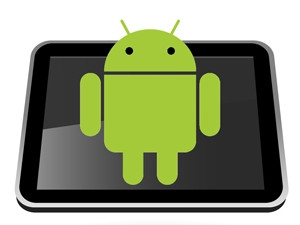
As lower-cost, smaller tablets proliferate, Android is poised to overtake the iPad in tablet market share this year.
This is according to the International Data Corporation (IDC), which has increased its 2013 tablet market forecast from 172.4 million to 190.9 million units expected to be shipped. The IDC also predicts tablet shipments will be up to 350 million per year by the end of 2017.
Research analyst for IDC's Tablet Tracker, Jitesh Ubrani, says one in every two tablets shipped this quarter is below eight inches in screen size.
"In terms of shipments we expect smaller tablets to continue growing in 2013 and beyond. Vendors are moving quickly to compete in this space as consumers realise these small devices are often more ideal than larger tablets for their daily consumption habits," says Ubrani.
Android is expected to reach 48.8% in tablet market share this year, at the expense of Apple's iPad, which IDC expects to slide from 51% to 46% market share, and then slide even further to 43.5% market share over the next four years.
Android is expected to peak at 48.8% market share this year, before slipping to 46% by 2017.
It is notable, however, that while the sheer volume of Android tablets sold are set to overshadow Apple's iPad, there is no single Android tablet which has sold nearly as well as the iPad.
Apple's iPad shipped 22.9 million units in the fourth quarter of 2012. The second top tablet vendor is Samsung which has seen 263% year-on-year growth in its tablet shipments and shipped close to eight million Android and Windows 8 tablets in Q4 2012.
Windows 8 on the rise?
While IDC expects Windows RT growth to remain below 3% during 2013, it says in the longer term the platform will cannibalise some of iOS and Android's market share, as it grows to 7.4% by 2017.
Research director for tablets, Tom Mainelli, says: "Microsoft's decision to push two different tablet operating systems, Windows 8 and Windows RT, has yielded poor results in the market so far.
"Consumers aren't buying Windows RT's value proposition, and long-term we think Microsoft and its partners would be better served by focusing their attention on improving Windows 8. Such a focus could drive better share growth in the tablet category down the road."
Also suffering as a result of the growth of the low-cost tablet market is the market for e-readers. "The growth of low cost tablets is clearly damaging the prospects of the single-use e-reader, and IDC reduced its forecast for the category by an average of 14% between 2013 and 2016."
According to IDC, e-reader shipments peaked in 2011, at 26.4 million units. The e-reader market is expected to grow modestly this year and next year, before beginning a gradual and permanent decline in 2015.
Reaching a peak
Earlier this month, another IDC report said demand for tablets in the Middle East and Africa increased by 90% in 2012. According to IDC researchers, the surge is a result of factors such as cheaper tablet entrants, reduced prices by vendors, and overall rising consumer demand. Tablet shipments are also expected to exceed portable PC shipments in the region as soon as 2016.
Following the global trend, IDC forecasts that the iPad's total market share in the MEA region is expected to decline, while Android and Windows will continue to grow.
In the smartphone market, ABI Research said earlier this year that Apple's market share will peak in 2013 and remain flat for the next five years, and the company will be chasing Samsung for device leadership for the foreseeable future.
Samsung's smartphone market share has grown from 8% in 2010 to 30% in 2012 and is still on the rise, while Apple is expected to peak this year at 22%.
Tablet operating systems, forecast market share and CAGR 2012-2017
Tablet OS | 2013 | 2017 | 2012-2017 |
Android | 48.8% | 46% | 14.8% |
iOS | 46% | 43.5% | 15% |
Windows | 2.8% | 7.4% | 48.8% |
Windows RT | 1.9% | 2.7% | 27.9% |
Other | 0.6% | 0.4% | 7.5% |
Total | 100% | 100% | 16.6% |
Source: IDC Worldwide Quarterly Tablet Tracker, March 2013
Share